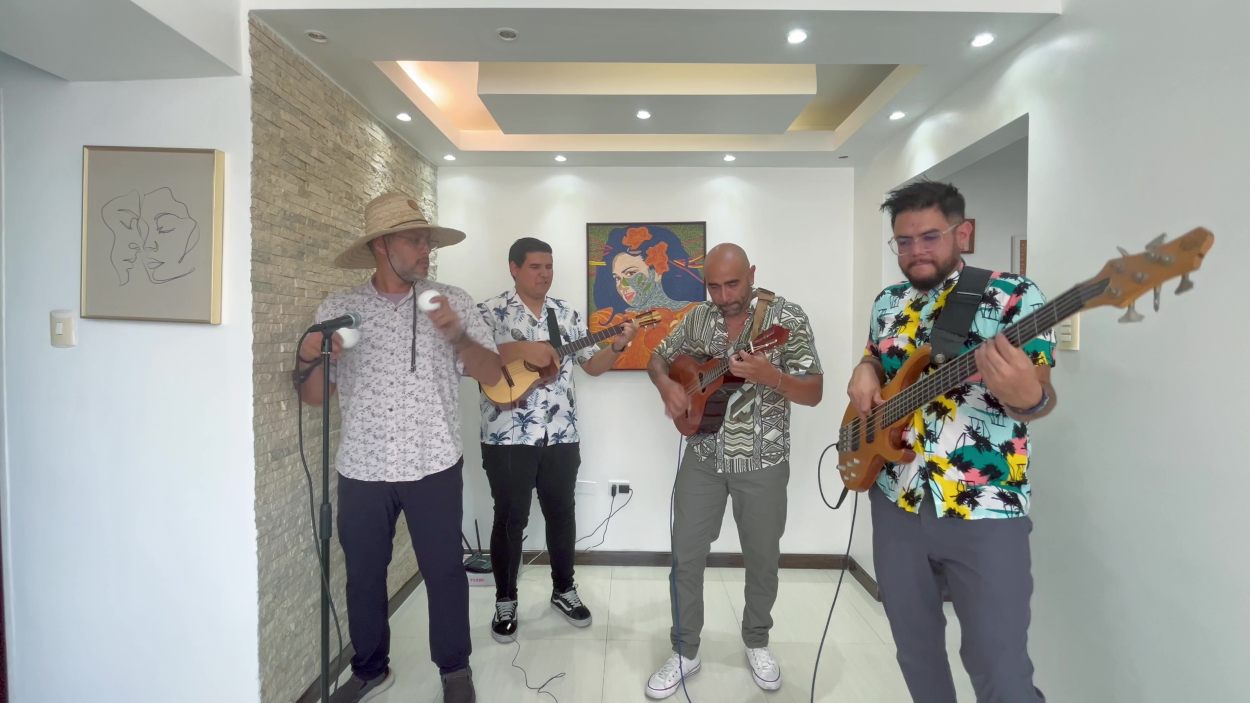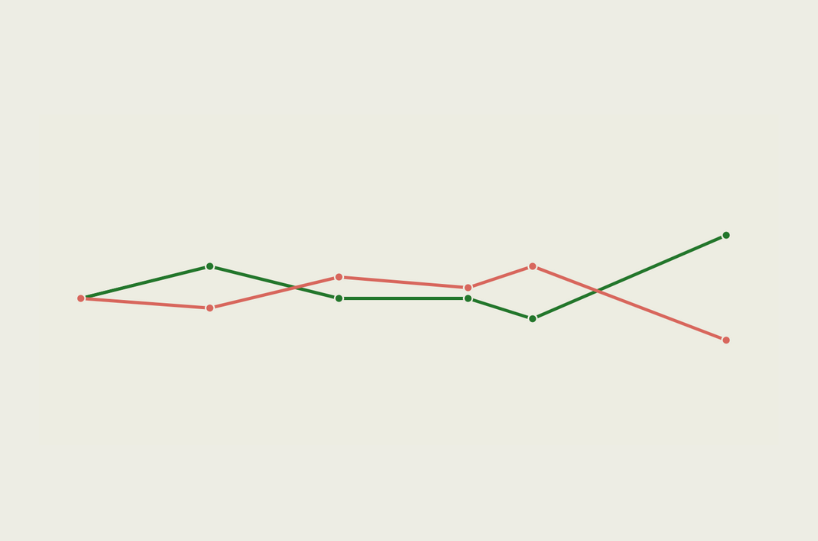Venezuela Update: The Opposition Primary
Venezuela Update: The Opposition Primary
On February 12, Venezuela will hold its first universal opposition primary as contenders vie to run against President Hugo Chávez in the October election. While the opposition prepares its campaign, Chávez plans for heavy spending in the year ahead.
Venezuela’s presidential primary takes place February 12, and the country is gearing up for a showdown in October, when President Hugo Chávez will run against a united opposition. The universal primary is the first of its kind in Venezuela, and will test the momentum of support for the opposition coalition before the general election.
Henrique Capriles Radonski of Justice First, Pablo Pérez of A New Era, and independent María Corina Machado are the three main contenders for the Coalition for Democratic Unity (MUD), a group of opposition parties competing in the primary race. Union leader Pablo Medina and former Ambassador Diego Arria are also running, but trail in the polls. Opposition parties created the MUD coalition in 2008 to compete with Chávez’s United Socialist Party of Venezuela (PSUV) during the 2010 parliamentary elections. At the time, the MUD claimed to win over 50 percent of the popular vote, although official figures placed the PSUV narrowly ahead of the MUD on that count. In order to improve the coalition’s chances for success, MUD members signed a pact in September pledging to support the winner of the February primary.
Capriles, who leads in the polls, received an extra boost last week when Leopoldo López of the Voluntad Popular party dropped out of the race and endorsed Capriles. This consolidated Capriles’ support base; according to the latest Datanalisis poll 24 percent of voters switched to backing him, giving him 61 percent of total voter intention. López was polling third, and the Chávez administration banned him from taking public office after allegations of corruption in 2008, casting doubts on the viability of an electoral win.
Expectations for Voter Turnout at the Primary
Despite growing momentum for the opposition, some observers project low voter turnout at the primary. According to the National Electoral Council, there were over 18 million registered voters at the end of 2011, as well as more than 71,000 Venezuelan voters living abroad. But a January Consultores 21 poll projected that only 28 percent of eligible voters will participate in the primary election. An Ultimas Noticias survey puts the turnout even lower, and estimates that under 2 million voters—or 11 percent of all voters—will cast their ballots on February 12. Meanwhile, a January Hinterlaces poll found that, for the general election, 50 percent of voters support Chávez, while 34 percent plan to vote for the opposition. Regardless of the low expected turnout, the universal primary is historic, since it is the first of its kind to be held in Venezuela.
Opposition Platforms: Social Programs with Business Friendly Policy
With Venezuela facing one of the highest murder rates in the world and rising inflation, the country’s voters cite crime and the economy as major electoral issues. The MUD’s candidates created their platforms accordingly. Capriles names former Brazilian President Luiz Inácio Lula da Silva as an inspiration for his political style, combining business friendly economic policies with social programs. The governor of Miranda state, Capriles seeks to represent a new brand of politics, breaking from a history of opposition politicians associated with corruption, and avoiding outright criticisms of Chávez. He has adopted a “man of the people” style, frequently visiting poor neighborhoods and riding a motorcycle. Capriles proposed a comprehensive education policy as a means to combat crime, and pledged to continue the most successful of Chávez’s social programs. He says he hopes to depoliticize Venezuela’s state-run oil company, Petróleos de Venezuela, S.A. (PDVSA), by employing qualified personnel rather than political appointees, but does not plan to privatize it. Capriles opposes Venezuela’s withdrawal from the World Bank’s arbitration court. He pledged to halt expropriations, and to review nationalized companies to see if they should be privatized or changed to joint ownership. He hopes to slowly replace the two-tier currency system involving separate government-set rates, to a single form of currency. He would respect debt in local and foreign currency. Finally, he hopes to realign Venezuelan alliances, prioritizing diplomacy with regional and “democratic” partners, as well as maintaining ties with China.
Pérez, the governor of Zulia state, offers some similar plans. He pledged to create 3.3 million jobs per year, proposing investments in infrastructure, agriculture, and tourism to boost employment. He announced a security plan to combat crime, including cracking down on illegal arms and improving the electric grid to ensure better street lighting. Pérez proposed an education program to promote a “culture of peace” and community sports programs for youth. He has portrayed himself as the left-leaning candidate—as opposed to Capriles’ centrist approach—in a bid to win over disillusioned Chávez supporters. But he also allied himself with two leftist political parties that governed prior to Chávez, associated with “old politics,” which could serve as a strike against him.
MUD candidates also unveiled a party platform on January 23. The coalition pledged to expand the police force, improve the judicial system, and renovate the country’s rundown, overcrowded prisons. The coalition said it would review public spending and gradually change price controls by shifting to a single form of currency for essential and non-essential goods. It proposed to increase the number of private companies in the oil sector and to increase production, as well as release PDVSA from its financial obligations to fund government social programs. Moreover, the MUD wants to reestablish the autonomy of the Central Bank, and to “depoliticize” public institutions, such as the army and judicial system.
Chávez’s Pre-election Policies
This year, the government will increase spending by more than 40 percent to about $69.3 billion, maintaining the popular conditional cash transfers programs. Called misiones, these programs are a main pillar of Chávez’s campaign strategy and policies. While aiding Venezuela’s Human Development Index standings, the misiones are the backbone of Chavez’s popularity. One example is Mi Casa Bien Equipada (My Well Equipped Home) which provides financing to families to buy Chinese-produced appliances. Another is the program Gran Mision Vivienda (Great Housing Mission), which aims to build 2 million housing units by 2019. However, the government built an average of 25,000 homes per year over the past 12 years, meaning it would need to increase that number to 300,000 a year to achieve the program’s goal. Another program, Gran Misión Saber y Trabajo Venezuela (Great Mission of Knowledge and Work), aims to create 3 million jobs over the next six years.
With an eye toward public spending triggering increases in Venezuelan inflation—which currently runs at 27 percent—the government has repeatedly raised the minimum wage and introduced the Fair Costs and Prices Law. The Law controls prices in five areas: food, personal and domestic hygiene products, car parts, medicine, and health services. To ensure the law is enforced Chávez said his administration would closely watch a number of multinational corporations. However, some analysts suggest the law could lead to more food shortages. The government is staying ahead by revamping its food importing policy, particularly with regard to basic products such as milk, sugar, wheat, corn, and oil. The government also urged private banks to give loans for agricultural production. In January, Eurasia ranked Venezuela on its list of top risks in the world, forecasting that this short-term, electoral vision would have a negative economic impact that would extend beyond the October election.
Chávez’s health and uncertainties about his cancer treatment and prognosis pose another issue. Despite concerns that his condition could serve as an obstacle to governing and campaigning, Chávez has reclaimed the spotlight through national broadcasts. During his annual presidential address on January 13, the president spoke for over nine hours, rejecting rumors that he is not fully cured. Additionally, the president reintroduced his weekly Sunday television program Aló Presidente!. The renewed focus on media programming has also resulted in the government broadcasting major policy decisions, such as the much-publicized receiving of the last shipment of repatriated gold bars as a safeguard against instability in financial markets.
Finally, changes in Chávez’s official party and cabinet have signaled a policy shift towards a heavier reliance on the military. On January 5, the PSUV chose Diosdado Cabello, a former vice president with close ties to the military as head of the National Assembly. Moreover, Chávez appointed General Henry Rangel Silva as defense minister. In a 2010 newspaper interview Rangel said the military would not recognize a new government in 2012. These appointments signal to voters that Chávez has the loyalty of those with the firepower.
The Closing of a Consulate and the Ex-pat Vote
In January, the U.S. government expelled Livia Acosta Noguera, the Venezuelan consul general in Miami, for allegedly taking part in a discussion to launch cyberattacks on the United States. In response, Chávez ordered the shutdown of the consulate. The move could work in Chávez’s favor given that in the past presidential election, three-quarters of the 15,800 Venezuelans voters in the United States voted at the Miami consulate. At the time of the 2006 vote, 9 out of 10 votes in Miami were in favor of the opposition. Despite the consulate’s closure, an official at the National Electoral Center said on Twitter that there will be voting centers adjacent to the consulate. However, reports of long queues and other hurdles during the voter registration process have surfaced at consular offices in other cities.








